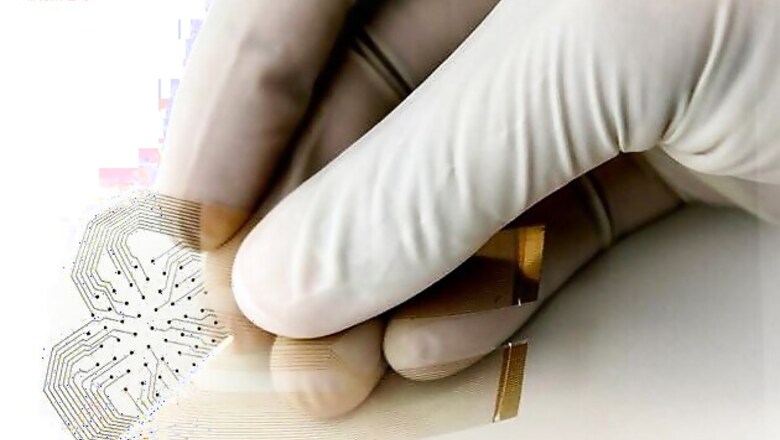
views
Washington: This new bandage can detect bedsores before they can be seen by human eyes, thereby making timely treatment possible.
Pressure ulcers, or bedsores, are injuries that can result after prolonged pressure cuts off adequate blood supply to the skin.
Engineers at the University of California, Berkeley, have created a new 'smart bandage' that uses electrical currents to detect early tissue damage from pressure ulcers, or bedsores, before they can be detected with the naked eye.
"We set out to create a type of bandage that could detect bedsores as they are forming, before the damage reaches the surface of the skin," said Michel Maharbiz, head of the smart bandage project.
Bedsores are associated with deadly septic infections, and the growing prevalence of diabetes and obesity has increased the risk factors for bedsores.
"We can imagine this being carried by a nurse for spot-checking target areas on a patient, or it could be incorporated into a wound dressing to regularly monitor how it's healing," Maharbiz explained.
The researchers exploited the electrical changes that occur when a healthy cell starts dying.
They tested the thin, non-invasive bandage on the skin of rats and found that the device was able to detect varying degrees of tissue damage consistently across multiple animals.
The invention, described in the journal Nature Communications, could provide a major boost to efforts to stem a health problem that affects an estimated 2.5 million people in the US alone.
"This bandage could provide an easy early warning system that would allow intervention before the injury is permanent. If you can detect bedsores early on, the solution is easy," said Michael Harrison, a professor of surgery at UC San Francisco and a co-investigator of the study.

















Comments
0 comment